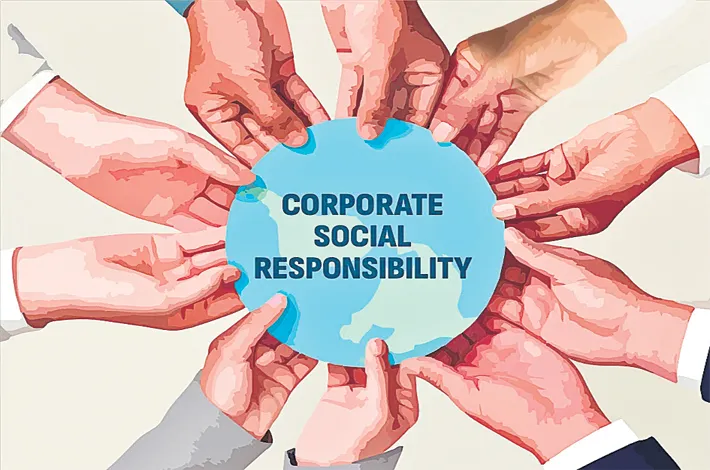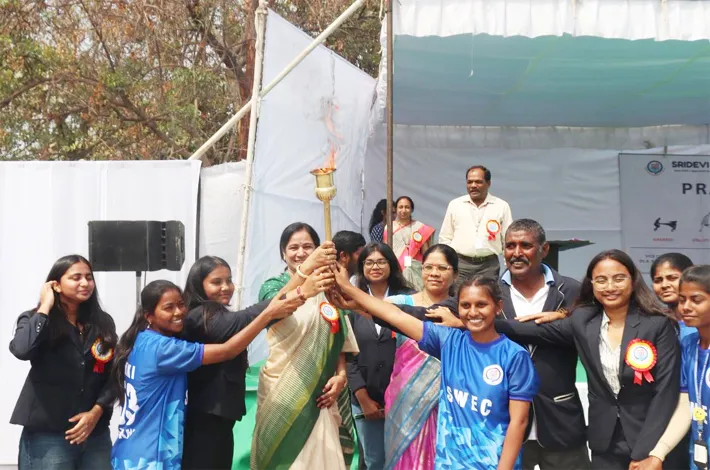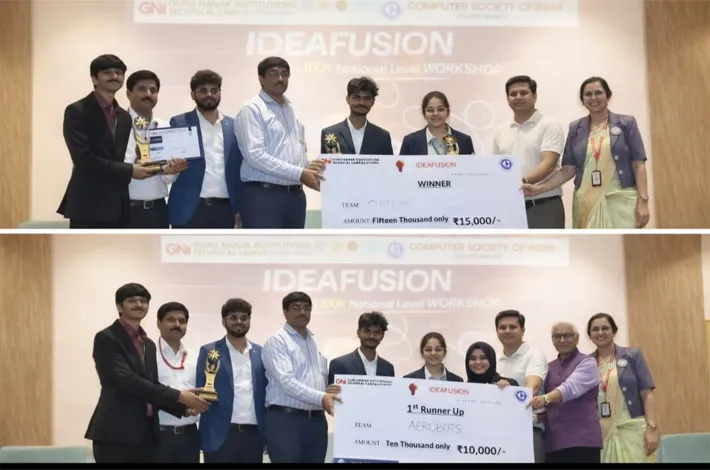CSR Boom in TG
22-08-2025 12:00:00 AM

Rs 3,857 Cr fuels education and health over five years
Education emerges as the undisputed hero, claiming the lion's share with ₹1,337.62 crore overall—rising from ₹167.16 crore in 2019-20 to ₹391.43 crore in 2023-24
In the bustling heart of India's tech hub, Telangana, a quiet revolution has been unfolding through the power of corporate goodwill. Over the past five years, from FY 2019-20 to 2023-24, companies registered in the state have poured a staggering Rs 3,857.62 crore into Corporate Social Responsibility (CSR) initiatives, transforming lives across villages, schools, and hospitals.
This surge in giving isn't just numbers on a page; it's a story of resilience amid pandemics, environmental challenges, and social inequalities, as revealed in a recent Lok Sabha query answered by Union Minister of State for Corporate Affairs Harsh Malhotra in reply to an unstarred question from BJP MP Konda Vishweshwar Reddy.
Picture this: In 2019-20, as the world teetered on the edge of COVID-19, CSR spending in Telangana started at ₹445.80 crore. But as the crisis hit, companies ramped up, hitting ₹627.71 crore in 2020-21—a 40% jump fueled by urgent health needs. The momentum continued: ₹688.58 crore in 2021-22, then a dramatic leap to ₹1,040.61 crore in 2022-23, and peaking at ₹1,054.92 crore in 2023-24. This escalation reflects not just economic recovery but a growing corporate ethos, with total allocations more than doubling over the period. All this data, meticulously filed in the Ministry of Corporate Affairs' MCA21 registry, is publicly accessible on www.csr.gov.in, painting a transparent picture of how businesses are giving back.
Diving into the sectors, education emerges as the undisputed hero, claiming the lion's share with ₹1,337.62 crore overall—rising from ₹167.16 crore in 2019-20 to ₹391.43 crore in 2023-24. Imagine classrooms buzzing with new tech and scholarships lifting dreams in rural pockets. Health care follows closely as the second top recipient at ₹871.95 crore, spiking during the pandemic from ₹93.79 crore to a high of ₹210.43 crore in 2022-23, funding hospitals, vaccinations, and wellness drives that saved countless lives.
Rural development ranks third with ₹344.81 crore, empowering villages through infrastructure and livelihoods, growing from ₹43.60 crore to ₹109.27 crore. Fourth is poverty eradication and hunger relief at ₹247.76 crore, with peaks like ₹80.45 crore in 2022-23 supporting food distributions and malnutrition programs—vital in a state blending urban glitz with rural struggles.
But is this money making a real difference? The government doesn't directly monitor impacts, but mandates companies with ₹10 crore+ CSR obligations to conduct independent assessments for big projects. These findings feed into annual board reports, ensuring accountability. A robust framework—CSR committees, action plans, CFO certifications, and audits—bolsters transparency, though critics argue for more granular oversight.
In Telangana's narrative, CSR isn't charity; it's a catalyst. From greening barren lands to educating future innovators, these funds weave a tapestry of progress. Yet, as allocations skew toward education and health, the call grows for balanced giving to uplift the forgotten corners. With over a billion rupees flowing annually now, the story continues-will corporations bridge the divides or stick to safe bets?
Sectors not on companies list
Some sectors do not seem be in the favour of corporate. Technology incubators got a mere ₹5.17 crore total, with zero in 2023-24, perhaps overshadowed by immediate needs. Agroforestry scraped by with ₹5.13 crore, while armed forces welfare and socio-economic equalities hovered around ₹2.54 crore and ₹9.80 crore, respectively. Even setting up homes for women and orphanages, at ₹6.01 crore and ₹13.54 crore, seem underprioritized, highlighting gaps in focus on niche vulnerabilities.








